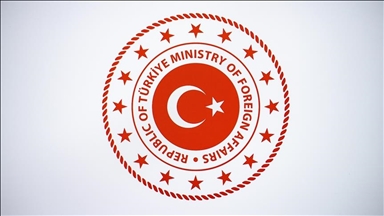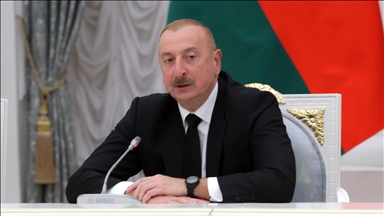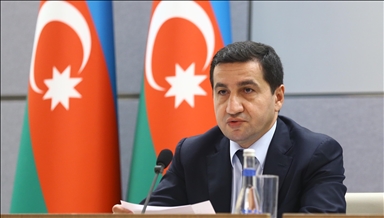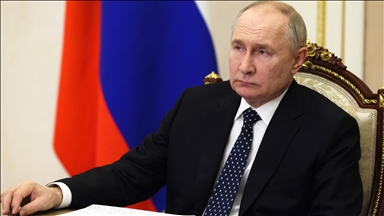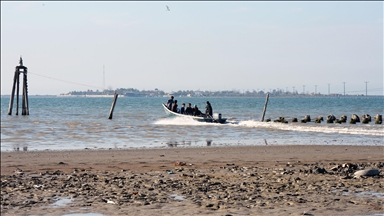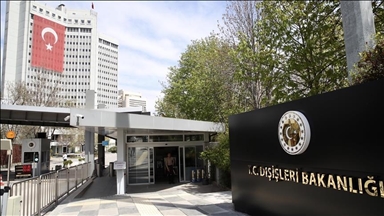'Armenia must withdraw from occupied lands'
If world wants to help with Upper Karabakh issue, they should get Armenia to leave Azerbaijani lands: Top Turkish diplomat
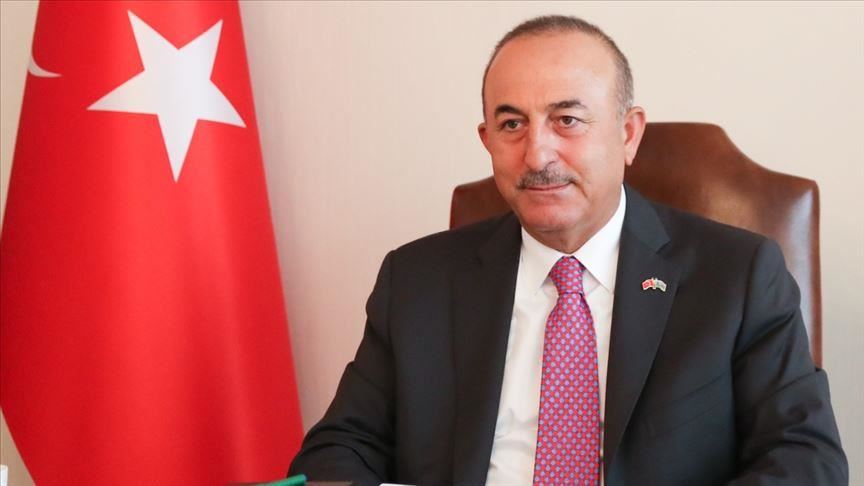
ANKARA
For Azerbaijan to agree with a cease-fire, Armenia must withdraw its forces from the occupied Azerbaijani territories, the Turkish foreign minister said Friday.
Speaking at a joint news conference with his Italian counterpart Luigi Di Maio, Mevlut Cavusoglu said Turkey stands in solidarity with Azerbaijan against its struggle for the occupied territories of Upper Karabakh.
Cavusoglu said the deadlock of the Upper Karabakh conflict between Armenia and Azerbaijan "encourages” Armenia to attack and illegally settle Armenian people to territories of another country.
“If the international community wants to do something about Upper Karabakh, they should get Armenia to leave Azerbaijani lands at once,” he said, adding that Turkey will support any effort in this direction.
“Azerbaijani lands have been under occupation for the last 30 years. Despite this, we wanted to work hard for a peaceful solution. Azerbaijan has also been very patient. But, no mechanism, including the Minsk trio [France, Russia, and the US], made an effort to solve this problem,” said Cavusoglu.
“I am not saying it could not find a solution, it did not make an effort. When we look at the statements made by the Minsk trio, it is seen that they are clearly taking sides. The countries and organizations we have assigned to solve the problem must be objective,” he added.
The top Turkish diplomat also said the occupier and the occupied country cannot be compared.
A peaceful solution will also benefit Armenia, said Cavusoglu, adding the international community should stop encouraging Armenian aggressions.
He also said Azerbaijan has not asked for Turkey's concrete help, but if asked, Turkey would not hesitate to help.
Border clashes first broke out on Sunday when Armenian forces targeted Azerbaijani civilian settlements and military positions, leading to casualties.
Azerbaijan's parliament declared a state of war in some of its cities and regions following Armenia's border violations and attacks in the occupied Upper Karabakh, also known as Nagorno-Karabakh.
On Monday, Azerbaijan declared partial military mobilization amid the clashes.
Upper Karabakh conflict
Relations between the two former Soviet nations have been tense since 1991, when the Armenian military occupied Upper Karabakh, an internationally recognized territory of Azerbaijan.
Four UN Security Council and two UN General Assembly resolutions, as well as many international organizations, demand the withdrawal of the occupying forces.
The OSCE Minsk Group -- co-chaired by France, Russia, and the US -- was formed in 1992 to find a peaceful solution to the conflict, but to no avail. A cease-fire, however, was agreed upon in 1994.
France, Russia, and NATO, among others, have urged an immediate halt to clashes in the occupied region.
Eastern Mediterranean
Cavusoglu also thanked his Italian counterpart for Italy’s balanced approach to the dispute between Turkey and Greece in the Eastern Mediterranean.
Turkey has taken steps to protect its rights against unilateral actions of Greece and the Greek Cypriot administration with the support of the EU, he said, and added that works on a solution are underway.
On Libya, Cavusoglu said both Turkey and Italy are in favor of a lasting peace and stability in Libya through a political process.
“There are things that we [Italy and Turkey] can do in Libya. It is necessary to work with the support of the international community to help Libya be back on its feet again.”
Turkey, which has the longest continental coastline in the Eastern Mediterranean, has rejected maritime boundary claims of Greece and the Greek Cypriot administration in the region, and stressed that these excessive claims violate the sovereign rights of both Turkey and the Turkish Cypriots.
Ankara has sent several drill ships in the past weeks to explore for energy on its continental shelf, asserting its own rights in the region, as well as those of the Turkish Republic of Northern Cyprus.
Turkish leaders have repeatedly stressed that Ankara is in favor of resolving all outstanding problems in the region through international law, good neighborly relations, dialogue, and negotiation.
EU-Turkey relations
Referring to the EU summit on Thursday, Cavusoglu said that due to the attitude of some member countries, the Turkish society is not willing to become a member of the bloc.
A cooperation between EU and Turkey would benefit both sides, he noted, adding that a “positive agenda” is a must to develop these relations.
“We have achieved this with new EU leaders but Greece and Greek Cypriot administration took hostage of EU-Turkey relations,” he added.
“EU is an objective organization. But if it wants to be a global organization, it must acknowledge when its members are wrong.
"There are member states who can acknowledge this, but according to yesterday’s [Thursday's] statements, it [the EU] cannot do that fully.”
Cavusoglu also said Turkey is not a country to rejoice on the news that there are no sanctions.
Anadolu Agency website contains only a portion of the news stories offered to subscribers in the AA News Broadcasting System (HAS), and in summarized form. Please contact us for subscription options.


